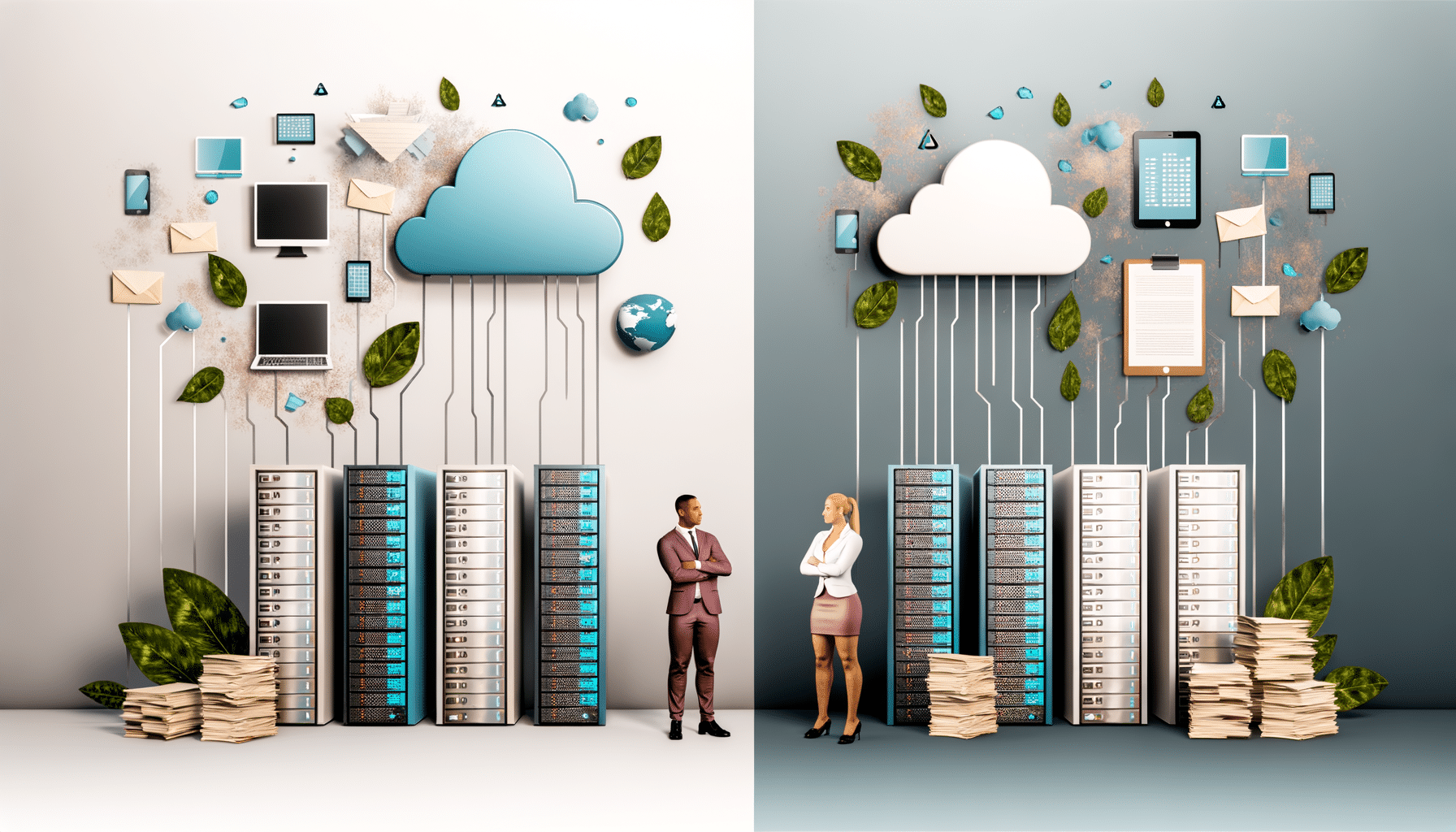Introduction
In our rapidly advancing world, the debate between digital and physical records is more pertinent than ever. As someone who has navigated the intersection of technology and sustainability, I understand the critical need to evaluate the environmental impact of our choices. Today, I delve deep into the environmental footprints of digital and physical record-keeping. We’ll explore how emerging technologies like those powered by RecordsKeeper.AI are shaping this landscape to offer more sustainable solutions.
Understanding the Environmental Cost of Physical Records
For years, businesses have relied on paper-based record-keeping. Despite its familiarity, the environmental costs are daunting:
- Deforestation: The production of paper requires vast amounts of wood, contributing to deforestation which impacts biodiversity and carbon storage.
- Water Consumption: Manufacturing paper is a water-intensive process, adding to the pressure on our planet’s vital water resources.
- Energy Use: From logging to transportation, physical record-keeping involves significant energy expenditure, leading to increased carbon emissions.
- Waste Management: Physical records eventually end up as waste, contributing to landfill mass and environmental degradation.
While we can recycle paper, it doesn’t negate the high initial resources consumed. The reliance on physical documentation is not a sustainable option in our quest for eco-friendliness.
Digital Records: A Greener Alternative?
Digital records, on the other hand, present an alternative with a potentially lighter environmental footprint. But are they entirely green?
- Reduced Material Use: Digital storage reduces the reliance on physical materials, eliminating the need for paper.
- Energy Efficiency: Modern data centres, though energy-intensive, are becoming increasingly energy-efficient with the adoption of renewable energy sources.
- Extended Lifespan: Data can be stored indefinitely without degradation, reducing the need for duplication and wastage.
However, we cannot overlook the environmental impact of e-waste and energy consumption related to data storage and processing. As the demand for digital records grows, it’s crucial to ensure that energy efficiency and waste reduction keep pace.
Leveraging AI and Blockchain for Sustainable Record Management
With RecordsKeeper.AI, I set out to redefine how digital records are managed to maximize environmental benefits. Here’s how innovative technologies are pushing us towards a more sustainable future:
- Automated Categorization: By leveraging AI, records are efficiently classified, reducing storage requirements and conserving energy.
- Secure Data Rooms: Our platform promotes the controlled sharing of records, minimizing redundancies and resource usage.
- Blockchain Integration: Offering immutable records, blockchain reduces duplication and enhances data integrity, thereby conserving energy.
- Energy-Efficient Storage Solutions: With regular upgrades to infrastructure, we ensure our digital storage solutions are aligned with the latest sustainable practices.
Key Considerations for Businesses and Organizations
So, how can businesses achieve the optimal balance between digital and physical records while minimizing their environmental impact?
- Audit Your Needs: Evaluate whether your documents need physical copies and explore digital options for efficiency.
- Invest in Green Technologies: Adopting platforms like RecordsKeeper.AI can streamline processes and align with eco-friendly practices.
- Engage in Energy Management: Monitor data storage systems to ensure they operate efficiently with minimal environmental impact.
- Encourage Digital Literacy: Promote the use of digital platforms among employees and clients to reduce reliance on paper.
Conclusion
Adopting digital records presents a promising opportunity to minimize environmental impact compared to traditional methods. However, it requires conscientious planning and the deployment of advanced technologies to truly realize sustainable benefits. At RecordsKeeper.AI, I am committed to pioneering record management solutions that marry efficiency with sustainability. Join me in this journey to redefine the way we think about record-keeping in the digital age.
I encourage you to explore more about the tools available for sustainable record management and hope you follow me for ongoing insights into our evolving landscape.








